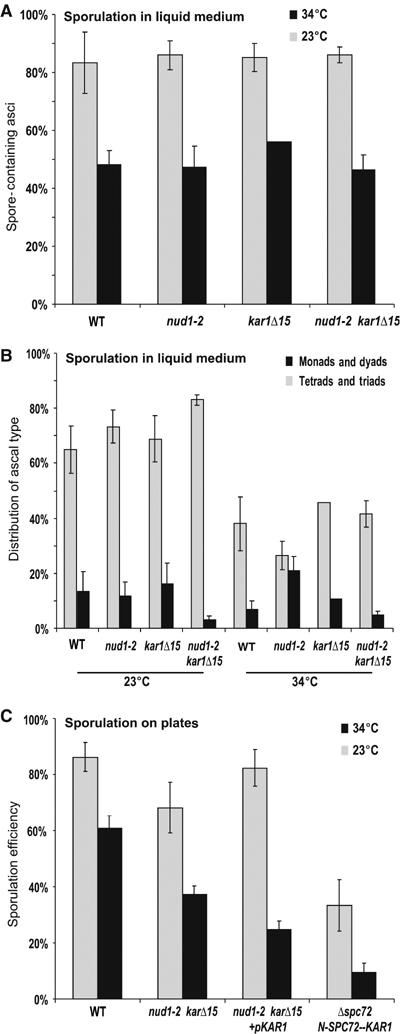Figure 1.

The nud1-2 mutation leads to reduced spore production under restrictive temperature in a KAR1-dependent manner. (A) Wild-type (WT), nud1-2, kar1Δ15 and nud1-2 kar1Δ15 double mutant cells (strains YKS32 (WT), YOG23, YOG52 and YOG66, respectively) were sporulated at the permissive (23°C) and restrictive (34°C) temperatures in standard acetate concentration (0.3%) for 1–2 days. At least 200 cells per strain and temperature were counted (4–13 experiments per strain; except only two for kar1Δ15 at 34°C). (B) Formation of ascus types with 1–2 or 3–4 spores in sporulated cultures of the strains from (A). At least 200 cells per strain and temperature were counted. (C) WT, nud1-2 kar1Δ15 double mutant cells, double mutant cells transformed with a KAR1 plasmid (pMR77) and a homozygous Δspc72 deletion strain expressing the fusion protein N-Spc72p-ΔN-Kar1p (YCT883-2) were sporulated at 23 and 34°C on sporulation medium plates for 3 days. The sporulation efficiency (the sum of spores divided by four times the sum of cells; 100% efficiency means 100% tetrads) was determined for at least 200 cells per strain and temperature. The means and standard errors from three to six experiments are shown.
